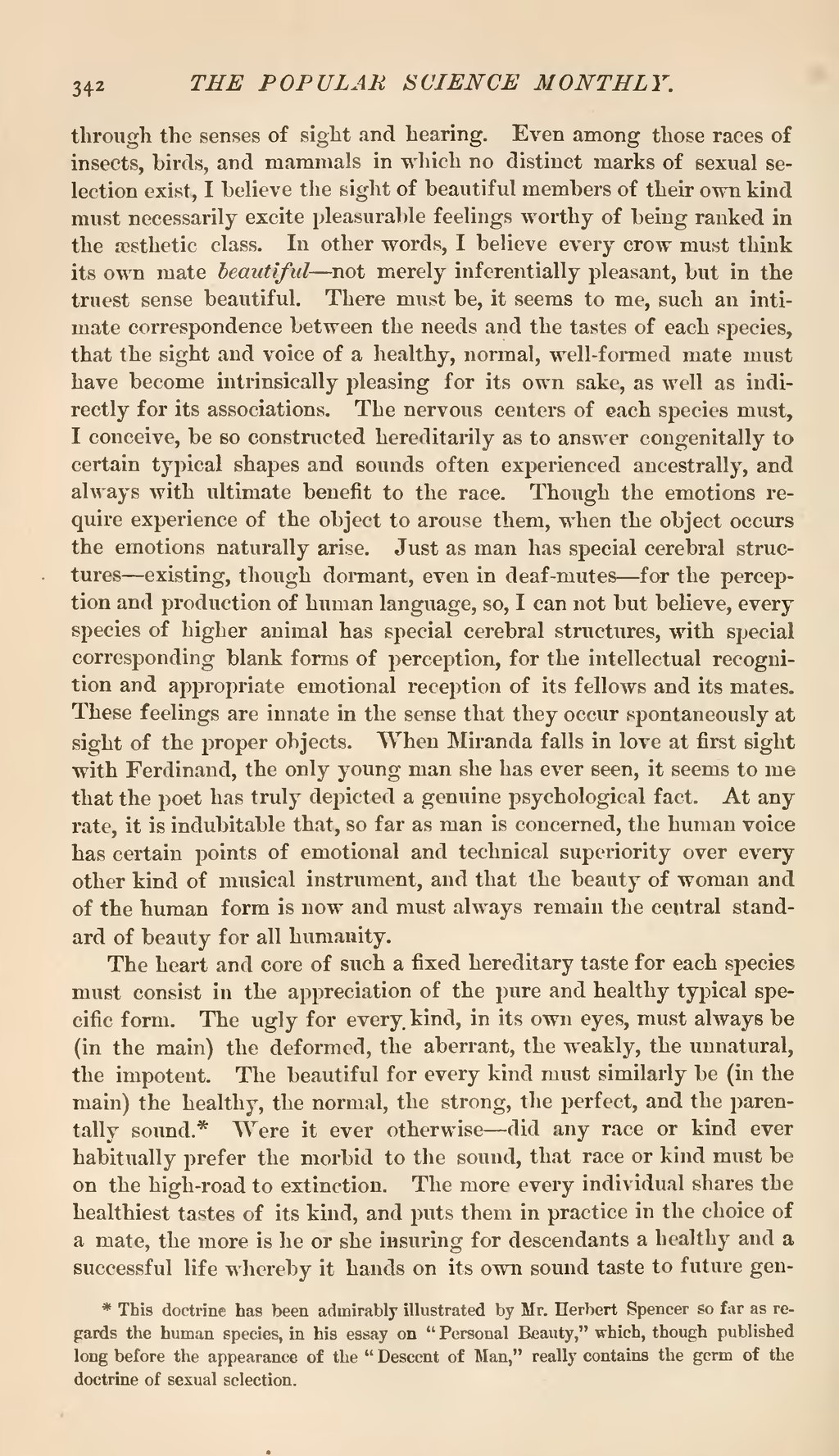through the senses of sight and hearing. Even among those races of insects, birds, and mammals in which no distinct marks of sexual selection exist, I believe the sight of beautiful members of their own kind must necessarily excite pleasurable feelings worthy of being ranked in the æsthetic class. In other words, I believe every crow must think its own mate beautiful—not merely inferentially pleasant, but in the truest sense beautiful. There must be, it seems to me, such an intimate correspondence between the needs and the tastes of each species, that the sight and voice of a healthy, normal, well-formed mate must have become intrinsically pleasing for its own sake, as well as indirectly for its associations. The nervous centers of each species must, I conceive, be so constructed hereditarily as to answer congenitally to certain typical shapes and sounds often experienced ancestrally, and always with ultimate benefit to the race. Though the emotions require experience of the object to arouse them, when the object occurs the emotions naturally arise. Just as man has special cerebral structures—existing, though dormant, even in deaf-mutes—for the perception and production of human language, so, I can not but believe, every species of higher animal has special cerebral structures, with special corresponding blank forms of perception, for the intellectual recognition and appropriate emotional reception of its fellows and its mates. These feelings are innate in the sense that they occur spontaneously at sight of the proper objects. When Miranda falls in love at first sight with Ferdinand, the only young man she has ever seen, it seems to me that the poet has truly depicted a genuine psychological fact. At any rate, it is indubitable that, so far as man is concerned, the human voice has certain points of emotional and technical superiority over every other kind of musical instrument, and that the beauty of woman and of the human form is now and must always remain the central standard of beauty for all humanity.
The heart and core of such a fixed hereditary taste for each species must consist in the appreciation of the pure and healthy typical specific form. The ugly for every, kind, in its own eyes, must always be (in the main) the deformed, the aberrant, the weakly, the unnatural, the impotent. The beautiful for every kind must similarly be (in the main) the healthy, the normal, the strong, the perfect, and the parentally sound.[1] Were it ever otherwise—did any race or kind ever habitually prefer the morbid to the sound, that race or kind must be on the high-road to extinction. The more every individual shares the healthiest tastes of its kind, and puts them in practice in the choice of a mate, the more is he or she insuring for descendants a healthy and a successful life whereby it hands on its own sound taste to future gen-
- ↑ This doctrine has been admirably illustrated by Mr. Herbert Spencer so far as regards the human species, in his essay on "Personal Beauty," which, though published long before the appearance of the "Descent of Man," really contains the germ of the doctrine of sexual selection.

